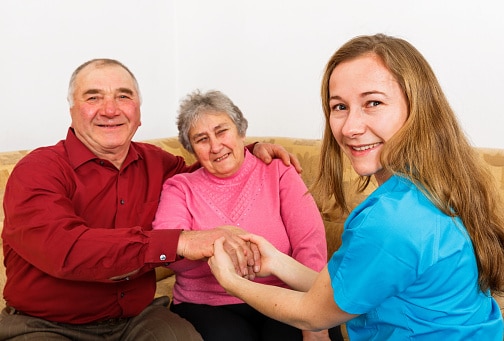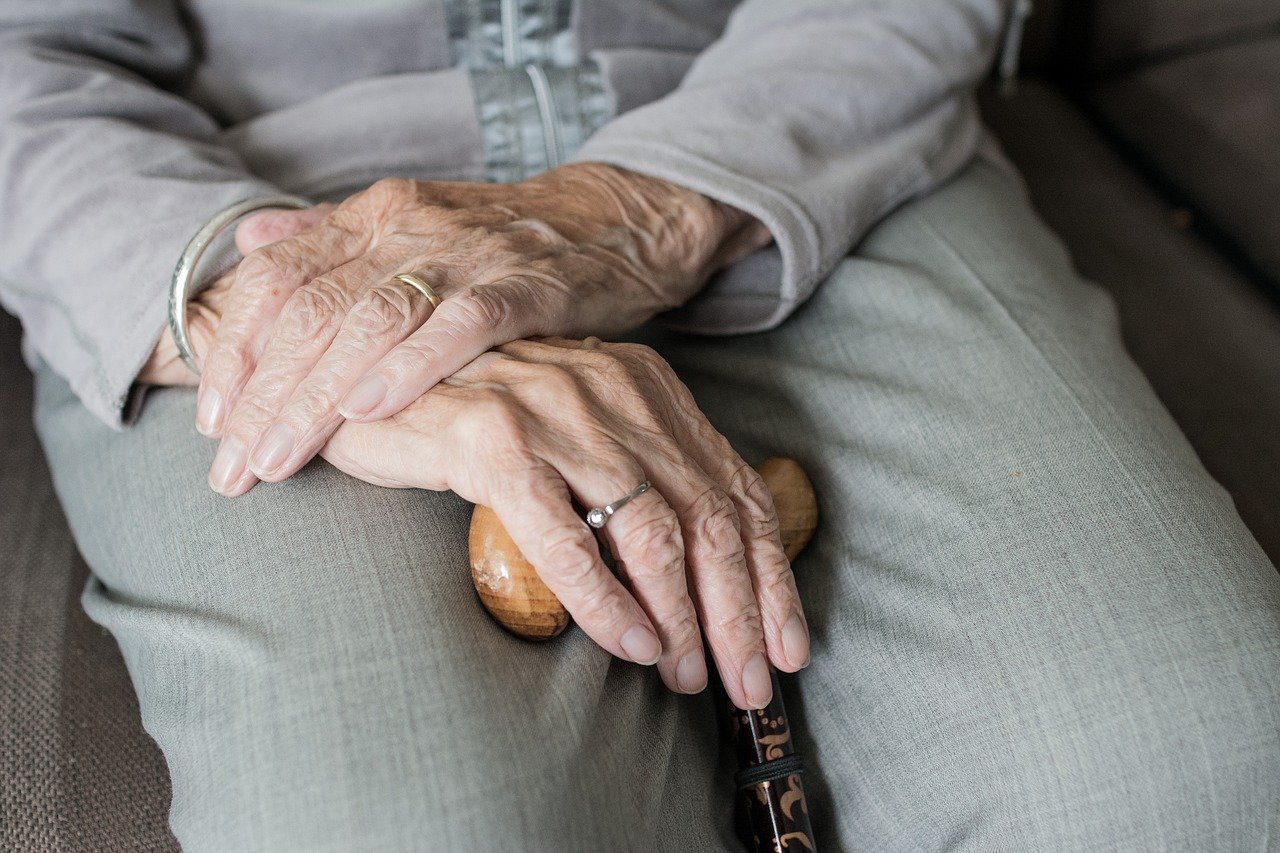
6 Alternatives to Nursing Homes
Senior living options come in many shapes and sizes. As you look into alternatives to nursing homes for you or a loved one, it’s important to understand the differences. Nursing homes tend to have a bad reputation, though often an unfounded one. To help your senior living search, let’s go over six alternatives to nursing homes so that you have a better sense of what may be right for your family.
Nursing homes
Before we go into alternatives to nursing homes, let’s make sure a nursing home isn’t the right choice for you.
While nursing homes are often seen as gloomy places, they don’t have to be. In essence, a nursing home is a care facility for those who are too ill or immobile to be cared for at home. It’s a 24/7 medical facility, so seniors are live-in residents.
The greatest benefit of nursing homes is that they provide specialized medical care around the clock. Besides hospitals, it’s considered the most extensive medical care available. For seniors who are quite ill, having 24/7 monitoring and care is essential.
Because it’s a residential facility, nursing homes also provide custodial care, as well as condition-specific services such as memory care or rehabilitation services. Depending on the nursing home, other living services are offered in addition to medical and custodial care, including:
- Housekeeping support (such as laundry and transportation)
- Meal and medication management
- Social enrichment and community
- 24/7 security and supervision
Therefore, a nursing home is a full-range facility that specializes in 24/7 medical care, but also provides custodial and living services.
Why might you look into alternatives to nursing homes?
If you or a loved one don’t require 24/7 medical care, you may look into other options. In fact, there are six options for seniors who don’t necessarily need around-the-clock care, may prefer to live at home, or want a more affordable option. Let’s go over these alternatives to nursing homes so that you have all the information you need to make a senior living decision.
Aging-in-place
If you’re a senior who wants to live at home but requires some care, these aging-in-place alternatives to nursing homes may be right for you.
1. In-home care
In-home care involves a wide range of services, depending on the patient’s needs. The general idea is for a nurse, aide, or therapist to attend patients in their own homes a few hours a day. It’s an excellent option for seniors who enjoy their independence and daily routine at home. Because care is highly personalized, it may also provide comfort and prevent emotional distress.
Furthermore, in-home care is often more affordable than a live-in facility since care is provided only a few hours a day. Programs such as Medicare and Medicaid may even pay for some in-home care services.
The exact in-home services provided vary greatly. Some common types of in-home care include:
- Nursing home care: This care is provided by a certified nurse in order to manage or treat a long-term illness, injury, or disability.
- Home health aide: This care is provided by a therapist in order to manage the recovery of an illness, injury, or hospital stay. In this case, patients relearn skills or speech.
- Personal home care: This care is provided by a health aide in order to improve the patient’s quality of life, including helping with custodial care, housekeeping, transportation, and companionship.
- Specialized home care: This care refers to customized care plans according to the patient’s needs. This care may include memory care, palliative care or hospice care.
Note: If you’re looking for alternative ways to pay for in-home services, there are some special programs such as PACE and HCBS waivers. These programs essentially serve seniors by providing in-home care or reimbursement, as well as some community care services. These programs are state-specific, so check your location for details.
Care facilities
If in-home care isn’t right for you, there are other types of care facilities that may be. Let’s look at alternatives to nursing homes that still involve live-in arrangements.
2. Assisted living facility
Assisted living facilities are a great hybrid care alternative. In an assisted living facility, seniors get a balance of care and independence. While every senior has their own private room, the facility provides meals, activities, entertainment, and transportation.
Assisted living means that residents have 24-hour on-call assistance, although it is not around-the-clock medical care. Here, seniors also get custodial care, such as help with dressing, toileting, bathing, eating, and medication assistance as needed.
Assisted living isn’t intended for seniors who require constant medical care, but it’s a good choice if custodial care is needed one or more times during the day. It also can give seniors a rich social life and a sense of community.
3. Adult foster care
Adult foster care is another live-in option, though it’s slightly different in scope. Also known as adult boarding homes, adult foster care provides living care to a small group of seniors (often 2-8). Like assisted living facilities, medical care isn’t typically provided. Instead, it’s common to receive custodial care, as well as meals, activities, and transportation.
The idea of adult foster care is to give a more intimate, personalized care experience with a handful of seniors instead of a full building. This care may even be provided in a house-like setting, which may be comforting to seniors.
Another benefit of adult foster care is that it’s more affordable than assisted living care and may have a more homey feel compared to a larger care facility.
4. Memory care facility
Another type of care facility is memory care. This care is designed specifically for dementia or Alzheimer’s patients. Like nursing homes, the care is 24/7 and is oriented towards patients who have memory or cognitive impairments.
Memory care facilities can give family members peace of mind, as dementia patients are monitored around-the-clock. Facilities are even designed to keep dementia patients from getting lost, and care aides are all trained on dementia patient needs.
While not the most affordable option, memory care facilities are an excellent alternative to nursing homes for seniors suffering from dementia or Alzheimer’s.
Hybrid home facility
There are also hybrid alternatives to nursing homes that involve seniors living at home but getting other types of care on a regular basis.
5. Adult day care
Adult day care is a way for seniors to be monitored during the day. It provides recreational and medical services during daytime hours from Monday-Friday, so that caregivers have a respite to work or take a break.
Adult day care provides some basic nursing and monitoring to ensure safety. However, its focus is largely on social activities and community interaction. In this program, seniors interact with each other, pursue hobbies, and enjoy activities under supervision.
One of the greatest benefits of adult day care is that a senior can continue living at home or with a loved one, while also being supervised during the day. This option isn’t right for seniors who need 24/7 medical supervision. However, if seniors can participate in activities with some assistance, it’s a great and affordable hybrid option.
6. CCRCS
CCRCs (Continuing Care Retirement Communities) is a type of senior living community that includes a range of custodial or nursing care for residents. It’s a great hybrid option that combines the independence of living in a community, while also offering a transition of care services as needed.
Most seniors in CCRCs get some assistance with daily tasks such as housekeeping, transportation, or personal care. They can also access recreational and social activities to keep them active. In many ways, it’s like an assisted living facility, except that every senior has his/her own apartment and may not require custodial or nursing care.
CCRCs are often quite pricey, though they’re a nice option for seniors who want to maintain some independence, while receiving a spectrum of custodial or nursing care as needed. Seniors also have their own unit, which can be comforting for seniors who want some privacy.
Other types of care
Of course, these six alternatives aren’t the only senior living options available. For example, respite care and hospice care are also available to seniors. However, they’re not exactly alternatives to nursing homes. Respite care is intended for a short-term stay at a facility to give caregivers a break, while hospice care is for terminally ill seniors.
Finding the right option for you
Now that you have an overview of these alternatives to nursing homes, it’s time to make your decision. Every senior has different needs and you’ll want to think specifically about your situation. Sometimes it may depend on the options available in your location, too.
Start your senior living search on My Caring Plan to put all the options on the table. You can search by type of care or location to find options near you. We hope you find a place that feels like home.
Sources:
- Senior Housing Options, Help Guide, www.helpguide.org
Related Articles

Elder Law Attorneys: A Comprehensive Guide
If you are someone who is taking care of a senior or has an elderly loved one, you should consider working with an elder law attorney. Though you may not expect it, individuals begin to face new and more complex legal concerns as they get older. Actions that may have seemed trivial when they were […]

When Is It Time for Assisted Living?
Wondering if it is time for assisted living for your loved one is a common question for caregivers. As a caregiver, you might have been considering the question for months or possibly even years. Your loved one might have declined to continue the discussion as the thought of moving out of their family home and […]

All About Adult Day Care: Community and Costs
Adult day care is a fairly new concept for caregivers. The basic idea is to provide a secure place where seniors can enjoy social activities during the day and be provided nursing care as needed. It’s a hybrid model of eldercare that prioritizes community. At the same time, seniors get help with common custodial tasks […]

Respite Care: An Overview
Caregiving can be overwhelming at times. That’s why taking a break is essential for recharging your battery. Respite care, also called short break care, is a way for caregivers to get temporary care for their loved ones so they can take some time to rest. Getting this “me time” of respite care can renew the […]

An Overview of Senior Rehabilitation Centers
Recovering from injury or illness in your golden years may take time and support. That’s where senior rehabilitation centers become essential. If you need a temporary stay to recover from injury or illness, senior rehabilitation centers can be the solution to get expert care and daily support. In this article, we’ll give you an overview […]

A Caregiver’s Guide to ADLs and IADLs
This article has been medically reviewed by Dr. Martin Duggan in 2021. This content is not intended to be a substitute for professional medical advice, diagnosis, or treatment. Always seek the advice of your physician or another qualified health provider with any questions you may have regarding a medical condition. As a family caregiver, your […]